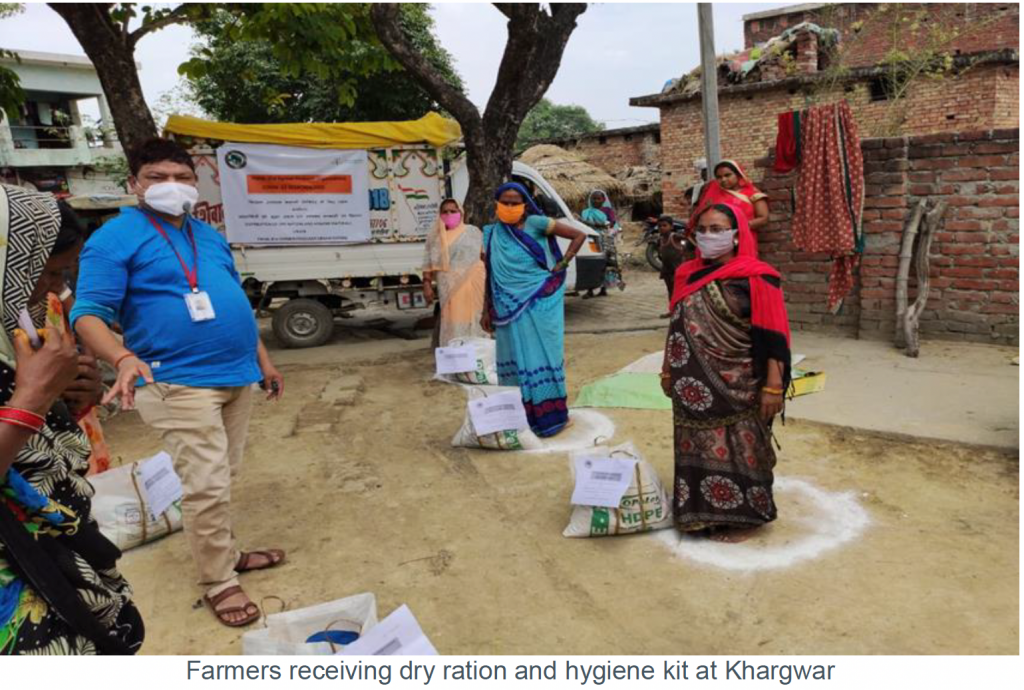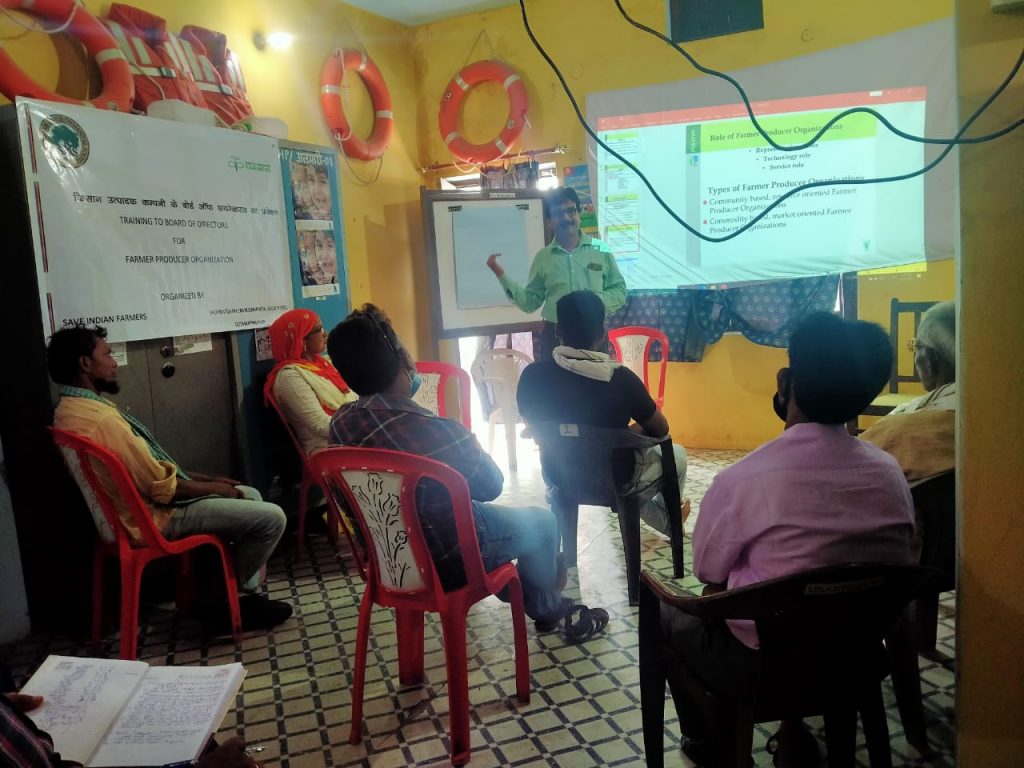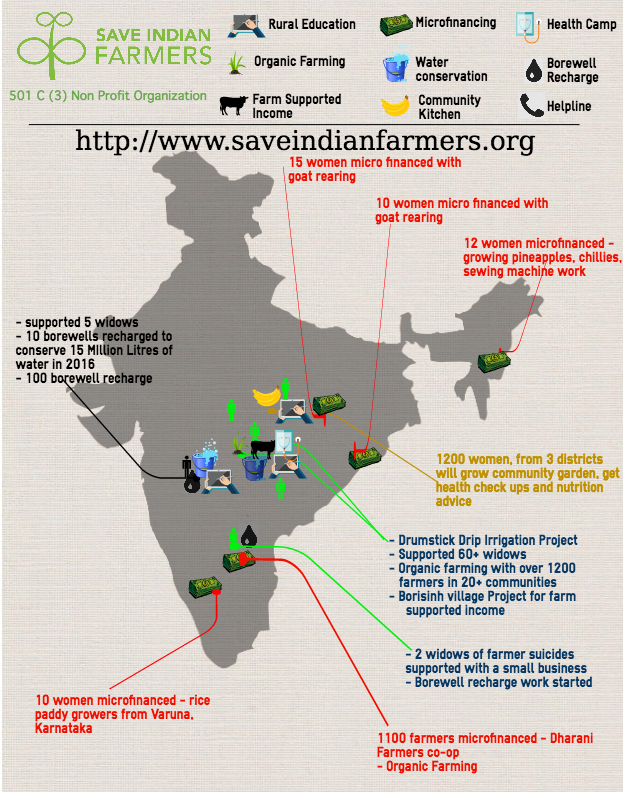Shohratgarh – Kalanamak FPO
Partner: Shohratgarh Environmental Society
Introduction
Numerous dispersed and fragmented farm holdings by small and marginal farmers primarily characterize agriculture in India. Being small and marginal in an increasingly globalized marketplace puts such farmers at a disadvantage and they cannot realize good value for their produce. Besides the inherent disadvantage of having a marginal farm holding, such farmers have minimal bargaining power in the marketplace at the time of purchasing inputs and selling the produce. The lack of information and knowledge means they cannot explore new channels of marketing and selling produce.
Organizing such farmers in Producer Organizations (POs) largely help mitigate the issues created by the economies of scale in input purchasing, processing and marketing the produce. A PO also provides the member-farmers adequate credit when required and timely connection to the markets along with facilitating logistics.
The Product – Kala Namak
Kala Namak is one of the finest quality scented kinds of rice’ of India. It derives its name from the black husk (‘Kala’ means black and the suffix ‘Namak’ means salt). This variety has been in cultivation since the Buddhist era (600 BC). It is popular in the Himalayan Tarai of Eastern Uttar Pradesh and is known as the scented black pearl of Uttar Pradesh. Food and Agriculture Organization of the United Nations feature it in the book ‘Speciality Rices of the World’. However, acreage under this variety dropped, forcing it to near extinction, for various reasons, some of which are:
- An outburst of Panicle blast epidemics during two consecutive years, 1998 and 1999.
- Tall stature of the crop which causes lodging in the farms.
- The long duration of harvest (6 to 7 months)
- Non-availability of quality seeds and research support
The Project
Siddharthnagar is one of the 75 districts of Uttar Pradesh State in Northern India. Siddharthnagar is one of eight aspirational districts the Niti Aayog has identified in Uttar Pradesh. Health and nutrition, education, agriculture, and water resources, financial inclusion, skill development, and basic infrastructure are the six indicators used to determine these districts.
Eighty percent of the farmers in Siddharthnagar are small and marginal. Low Seed Replacement Ratio (SRR) and lower adoption of certified seed, poor soil health, and unbalanced use of fertilizers, inadequate credit flow, land degradation and depleting water resources, the slow pace of mechanization are the major reasons behind yield gap in most of the crops produced in this region.
Save Indian Farmers has collaborated with Shohratgarh Environmental Society to form a Farmer Producer Organization (FPO) in the form of a Co-operative in Shohratgarh, which is the epicenter for production of Kala Namak in Shohratgarh. The FPO will not only encourage farmers to produce but also provide and management training as well as marketing basics and promote Kala Namak.
Primary objectives of the FPO shall be:
- Increase the income level of small and marginal Kala Namak rice farmers.
- Make quality inputs available to farmers timely, and at reasonable prices.
- Enhance farming capacity of the farmers through agriculture best practices for enhanced productivity of Kala Namak.
- Promote home gardens of vegetables for landless women, for household consumption, improved nutrition and occasionally for an income supplement.
- Introduction of new technologies in rice farming.
- Make available all agricultural related facilities for farmers at a minimal cost.
- Establishing direct linkages between consumers and farmers.
- Branding of Kala Namak rice to increase its market value.
- Helping farmers enjoy various entitlements like Kisan Credit Card, Pradhan Mantri Krishi Sinchai Yojana, Pradhan Mantri Fasal Bima Yojana and social security measures like pension and insurance schemes.
Our Progress
100 Dry ration kits and Hygiene kits delivered to 100 vulnerable small and marginal farmers households of Shohratgarh, Uttar Pradesh who have become food distressed due to the COVID19 epidemic and total lockdown. The food kit is expected to support a family of five for three weeks

Distributed details dry rations given below:
|
Dry ration kits and Hygiene kits |
|||
|
# |
Items |
HHs |
Quantity in a kit |
|
01 |
Rice |
100 |
15 Kg |
|
02 |
Dal – Pulses |
100 |
5 Kg |
|
03 |
Flour |
100 |
10Kg |
|
04 |
Refine Oil |
100 |
5 Lit. |
|
05 |
Soap |
100 |
4 Pc |
|
06 |
House cleaning |
100 |
2Pc |
|
07 |
Sanitary napkin |
100 |
1 Packet |
|
08 |
Local Mask |
100 |
2 Pc |
Baseline Survey
We conducted a baseline study to understand the primary occupation, poverty status and basic infrastructure of the area. The study indicated over 70% dependency on agriculture, 20% people below the poverty line and most areas not being irrigated. Read the full Baseline Survey Report
Villages Identified
Villages identified after survey are:
|
# |
Village |
No. of Farmers |
|
1 |
KARMA |
4 |
|
2 |
BHADAW |
5 |
|
3 |
KHARGWAR |
33 |
|
4 |
TEKANAR |
6 |
|
5 |
CHODAR |
8 |
|
6 |
PAKARI |
2 |
|
7 |
PARIGAWA |
15 |
|
8 |
PALTADEVI |
1 |
|
9 |
NIYAW |
12 |
|
10 |
RAMWAPUR NANKAR |
4 |
Training Activities
A training session for the Members of the Board of Directors was conducted on 24 June 2020.
List of participants as follows:
|
# |
Beneficiary Name |
Village |
Age |
|
1 |
PRAMOD CHAUDHARY |
KARMA |
35 |
|
2 |
BUDHIRAM |
KHARGWAR |
43 |
|
3 |
RAMSAMUJH |
KHARGWAR |
35 |
|
4 |
AASMA |
TEKANAR |
40 |
|
5 |
DHARAMRAJ |
PAKARI |
40 |
|
6 |
GANESH BHADUR |
NIYAW |
48 |
|
7 |
RAJKUMAR |
BAGAHWA |
33 |
|
8 |
ANIL SRIVASTAVA |
BAGAHWA |
46 |





